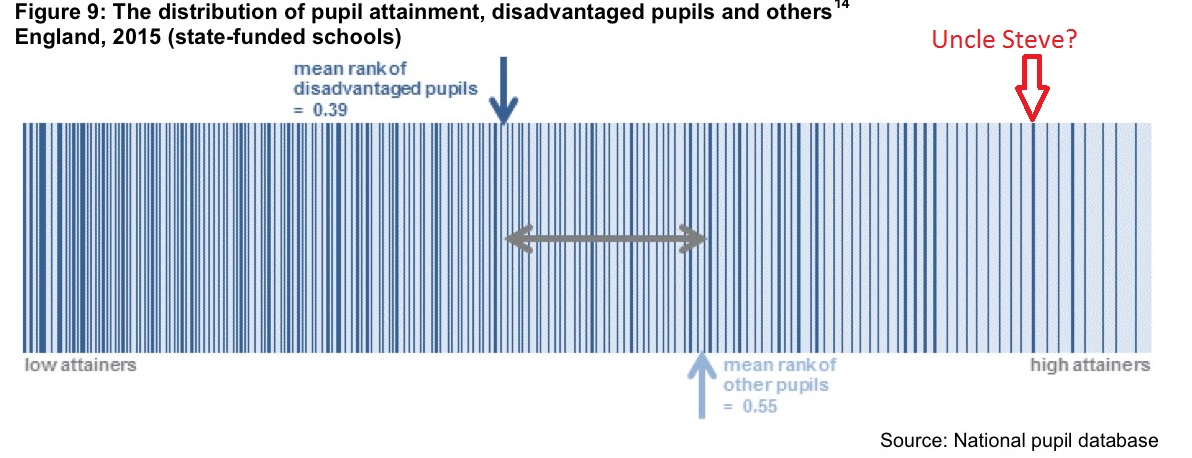Grammar Schools and Social Mobility: The Uncle Steve defence
7th August 2016
When the question of grammar schools is raised, the standard response is that “Uncle Steve came from a really tough background and it’s thanks to grammar schools that he made something of himself.”
That’s great news for uncle Steve, but it’s an argument that depends on several assumptions and it certainly doesn’t mean they’re good for social mobility.
The graph below shows the distribution of pupil attainment aged 11 in 2015 with disadvantaged kids like little-uncle-Steve in dark blue and his better off peers in light blue. If Uncle Steve went to a grammar school he was probably one of these kids:

Unfortunately, if you cream off the top n% of kids in this distribution, there aren’t a whole lot of other poor kids in there. So actually, grammar schools ‘worked’ for uncle Steve because he happened to do unusually well and bucked the trend. In fact he was a bit of an anomaly; perhaps he had parents who particularly valued education and supported him to succeed (he might have done rather better than his peers wherever he ended up).
Indeed, the claim that he succeeded ‘thanks to’ grammar schools also assumes that had he not gone to a grammar school he would have gone to an awful school. Maybe he would have done, but that’s not necessarily the case. In fact many schools have improved rather a lot since Uncle Steve was at school. Poor kids do not only succeed in grammar schools and the alternative to going to one needn’t be going to a rubbish school.
It’s also worth considering whether schools neighbouring uncle Steve’s grammar were bad partly because his school had sucked up the kids with the most motivated and pushy parents; had taken first pick of the teachers; and had left behind the more troubled, challenging and complex pupils. There’s a reason so many poorly performing schools are in grammar school areas.
Ultimately, grammar school may have served Uncle Steve well, but he was in a small minority which we should not be basing policy on. Furthermore, there’s no reason why he shouldn’t have done well elsewhere – nor should his success have come at a cost to others.
More from LKMco on Grammar Schools
Grammar schools and Kilroy Silk – why mum was proud to keep it comp – by Anna Trethewey
Why grammar schools specifically for the ‘bright-but-poor’ wouldn’t help either – by Loic Menizes

Comments